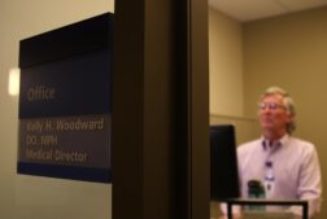
According to the American Lung Association, more men than women are diagnosed with lung cancer each year. It’s not surprising men are more affected by lung cancer since the Centers for Disease Control and Prevention notes more men in the U.S. smoke than women, and smoking is the No. 1 cause of lung cancer. In fact, it’s been linked to as many as 90% of cases.
In most instances, lung cancer doesn’t cause symptoms until the later stages when the disease is advanced. However, some people do experience symptoms in the early stages. If you notice any of these signs, visit your doctor right away:
Cough that doesn’t go away or worsens.
Chest pain that worsens when you breathe deeply, cough or laugh.
Chronic instances of bronchitis or pneumonia.
Cough accompanied by either blood or rust-colored phlegm.
Fatigue and weakness.
Shortness of breath or wheezing.
Unexplained weight loss or appetite loss.
Today, early lung cancer detection methods are available. If you’re between the ages of 55 and 80, either currently smoke heavily or quit less than 15 years ago and aren’t experiencing lung cancer symptoms talk with your physician about a lung cancer screening.
The U.S. Preventive Services Task Force recommends yearly lung cancer screening with low-dose CT scan for those at risk. According to the U.S. Centers for Medicare and Medicaid Services, people who meet the following criteria may be screened:
You are age 50 to 77.
You are asymptomatic — do not have signs or symptoms of lung cancer.
You are a current smoker or have quit smoking within the last 15 years.
You have a tobacco smoking history of at least 20 “pack years” (an average of one pack — 20 cigarettes — a day, per day for 20 years).
You have a doctor’s order for a low-dose CT scan.
If you think you are eligible, speak with your primary care provider today.
If you are looking for a provider, visit NW-Physicians.com to find one near you. Same-day appointments are often available.
Stay alive – stop smoking now
If you’re a smoker, you’ve done some damage to your body over time. However, the good news is that it’s never too late to quit smoking.
Quitting by age 40 almost completely erases your risk of an early death from the effects of smoking. Of course, this doesn’t mean you can smoke as much as you want until age 40 and then quit without any effects — it just means in the years after you quit, your body actually earns back up to a decade of life expectancy that you’d previously lost due to your risk of stroke and heart disease decreasing substantially.
Quitting smoking has some other key effects on your long-term health as well:
Your coronary heart disease risk is cut in half a year after you quit smoking and returns to that of a nonsmoker’s 15 years after you quit.
Your lung cancer death risk halves 10 years after you quit.
Food tastes better, which means you may be more likely to enjoy fresh, whole fruits and vegetables rather than turning to processed, sodium-packed foods for flavor. Healthier eating means better health overall.
Exercise will leave you less winded, and in turn you’ll be able to do more — which only continues to improve your health.
Quitting smoking has positive effects on your health for years. Talk to your doctor about strategies and resources to help you quit smoking for good.









